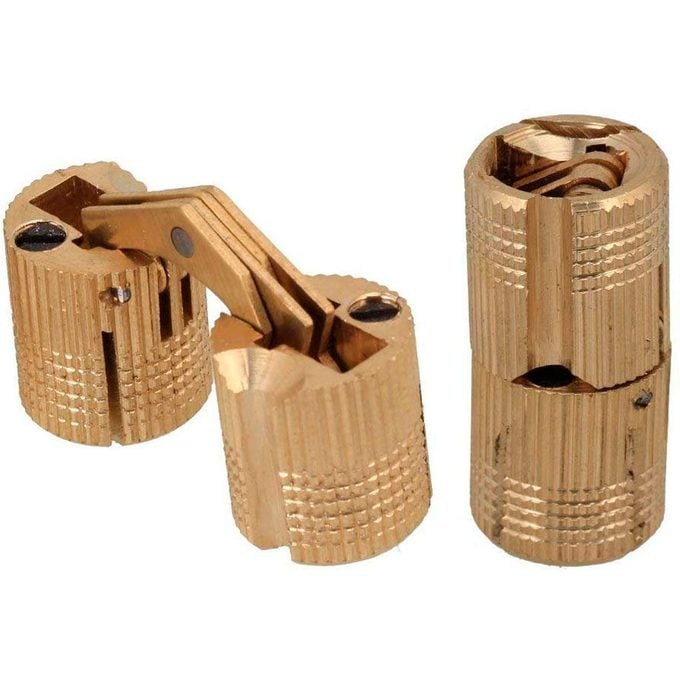Everything to Know About Barrel Hinges
Updated: Aug. 25, 2023
Barrel hinges function so discretely and out of sight, you could very well call them the true hidden gems of your project.

When you’re making a showcase-quality cabinet with doors or crafting a special wooden box, you want all eyes on the design, the wood and the craftsmanship. That’s where barrel hinges come in. They function so discretely and out of sight, you could very well call them the true hidden gems of your project.
What Are Barrel Hinges?
They’re small barrel-shaped hinges typically made of solid brass, including brass links. The most common brand you’ll likely run across is Soss. Barrel hinges are used for wood projects, such as small cabinets or jewelry boxes. (Barrel hinges aren’t recommended for vertical or load-bearing applications.) They’re a great choice when you don’t want to see a hinge; barrel hinges are totally invisible from either side when looking at a wood box or cabinet. They open fully, to 180 degrees.
How Are Barrel Hinges Installed?
To install a barrel hinge, you drill holes in the door and frame (or lid and box) and then slip the hinges into the holes. If the hinges have small set screws—Soss barrel hinges, for example, do—turn them to expand the barrel slightly in the hole and hold it in place.
How Much Do Barrel Hinges Cost?
That depends on size. Prices for barrel hinges at The Home Depot currently range from $1.87 to $4.08 per hinge.
Check out The Home Depot’s and Amazon’s selection of barrel hinges.
What Are Some Tips for Installing Barrel Hinges?
• When marking the location for where to drill holes for barrel hinges, make sure you measure twice. It’s critical you get it right. There’s no opportunity to adjust the hinges for fit.
• Barrel hinges are sold in metric sizes only, so you have to use a metric drill bit to drill the holes.
• It’s critical that the holes you drill are the proper depth.
• Once the barrels are in the holes, you’ll need a small screwdriver to expand them. This will lock them in place.
Get more installation tips from the Woodworkers Guild of America.
